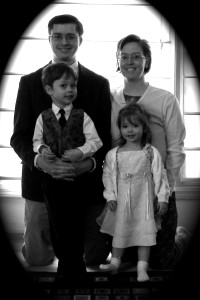
31 August 2004 10:13 pm
Naperville's Presence Restriction
In the city of Naperville, Illinois, it is illegal, if you are less than 21 years of age, to be present when alcohol is being illegally consumed even if you are not drinking. If this sounds reasonable, go back and read that first sentence again. Now, IANACL (I Am Not A Constitutional Lawyer), but this law appears to trample on the First Amendment Right of Assembly. I know, that in an age when our Constitutional Rights are being trampled by the Bush Administration, it seems silly to mention this law, but sometimes you have to take a look in your own backyard.
While the more abstract issues trouble me greatly, let's first consider a very practical one. I hope that we would all agree that what we want, most of all, is our young people to be safe. From a realistic perspective, some under-age youth will drink and some will drink too much. Once this occurs, the most important thing is for them to get home safely. Who is in an excellent position to make sure this happens? Similarly aged, sober young adults. What does this law do? It actively discourages these caring young adults, who don't drink, from making sure that their friends don't die driving home drunk. Fortunately, as reported in the Naperville Sun, at least one young adult cares too much about their friends for this ordinance to get in his way. He has pledged to continue to drive a drunk friend home if needed.
From a more abstract perspective, the message that this ordinance sends to the city's young adults; that's right, those often cited are adults, is that we don't trust them. These are adults that we trust to elect the President of the United States of America, adults that we trust to defend our country and die for our country, adults we trust to do anything but have a beer or rent a car or, in Naperville, simply attend a party and choose not to drink.
Perhaps my inference isn't accurate. Perhaps we really do trust these young adults. If so, what motivates this ordinance? Maybe it takes too much effort to actually prove that an adult that is less than 21 years old is actually consuming alcohol and it's easier to cite everyone in the vicinity. If this is the case, imagine if this logic is applied to other laws.
Let's do just that. As an exercise to illustrate the absurdity of this ordinance, let's apply the logic behind it to other laws. Take the interstate, for example. Does anyone on the interstate believe that everyone on the interstate is following the speed limit? Of course not. When I drive 55 MPH on I-88, it appears that I'm stalled and sitting on the shoulder. So, applying the logic behind this law, rather than the hassle of clocking speeding motorists, pulling them over, and ticketing them, let's simply cite everyone on the interstate. This would be easy, the tool-booth attendant could simply hand out the citations when you pay your toll. Absurd? Well, yes. But, this example is based on similar logic.
Let's look at another example. Does everyone who attend a Dylan concert believe that no one is smoking dope? Of course not. So, again applying the logic behind this law, rather than the hassle of finding these pot heads and arresting them, let's simply cite everyone in attendance. This too would be easy, TicketMaster could process your citation at the time you buy your ticket. I'm sure they would charge an extra service fee, however.
Last example. I'm at a picnic. Somone's twenty-year-old son is drinking a beer with his Dad. (I know, the horror of it.) The police show up and cite my seven-month-old son since he is at the picnic. Okay, technically, this could have only happened before 2003, since, in 2003, 16 years after the ordinance was originally passsed, the law was narrowed by the restriction that the perpertrator should know that the law is being broken. However, it won't be long before my son does understand this and would be performing community service on his weekends.
If you would like to share your thoughts on this ordinance with the Naperville City Council, there will be a public meeting on 9 October 2004 at 8 a.m. at the Council Chambers of the Naperville Municipal Center.
